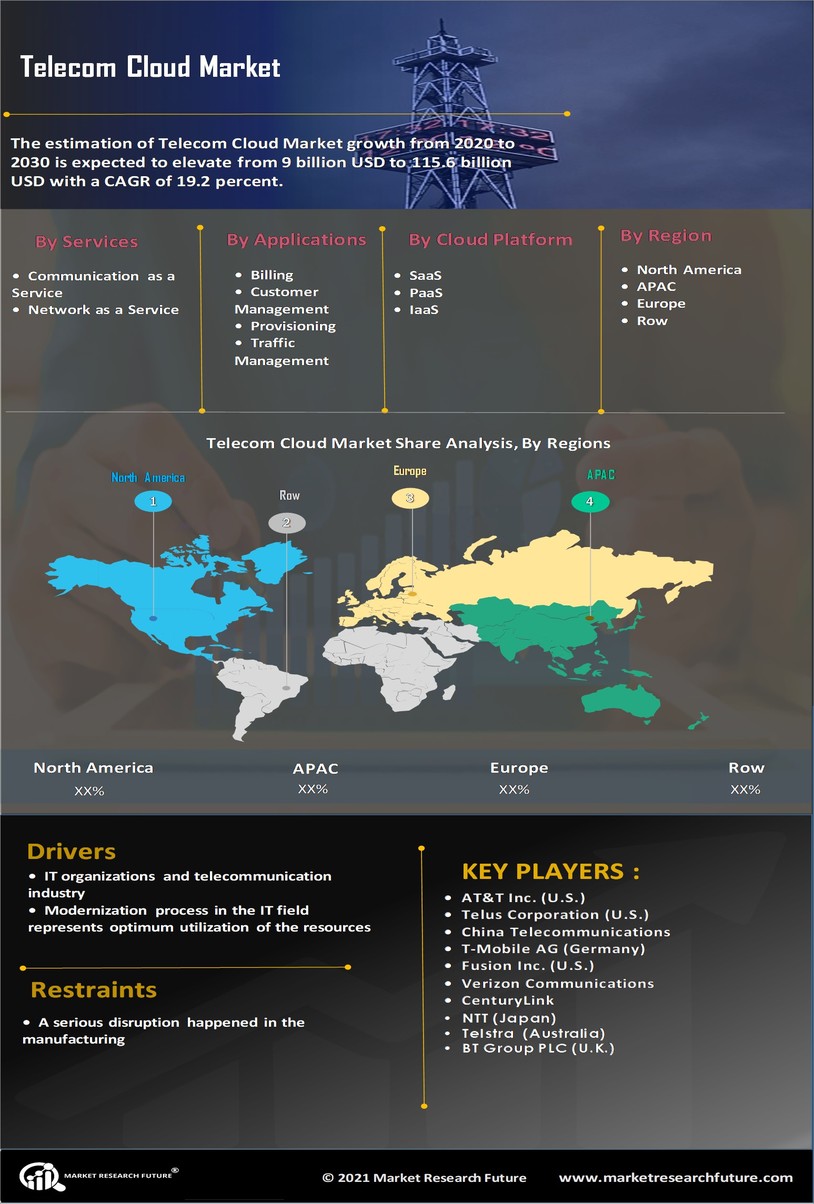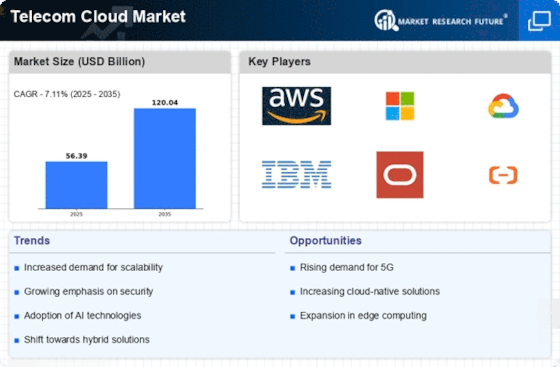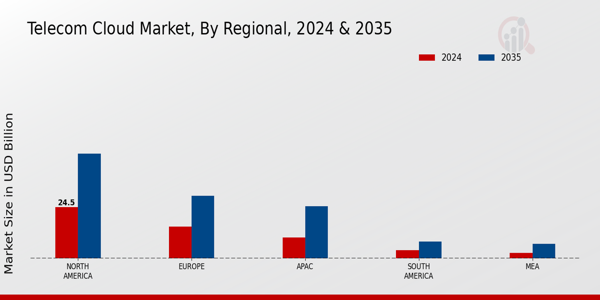Emergence of Edge Computing
The rise of edge computing is reshaping the Telecom Cloud Market. As the demand for real-time data processing increases, telecom operators are exploring edge computing solutions to enhance service delivery. By processing data closer to the source, operators can reduce latency and improve the performance of applications, particularly in sectors such as IoT and autonomous vehicles. The edge computing market is anticipated to grow significantly, with estimates suggesting it could reach 15 billion USD by 2025. This growth presents opportunities for telecom companies to integrate edge capabilities into their cloud offerings, thereby enhancing their competitive edge in the Telecom Cloud Market. The convergence of cloud and edge technologies is likely to redefine service architectures and operational strategies.
Growing Demand for 5G Services
The increasing demand for 5G services is a pivotal driver in the Telecom Cloud Market. As telecommunications companies expand their 5G networks, the need for cloud-based solutions to manage and optimize these services becomes paramount. The global 5G market is projected to reach approximately 700 billion USD by 2026, indicating a robust growth trajectory. Telecom operators are likely to leverage cloud technologies to enhance network performance, reduce latency, and improve user experiences. This shift towards 5G necessitates the integration of advanced cloud solutions, thereby propelling the Telecom Cloud Market forward. The ability to support massive IoT deployments and high-speed data transfer further underscores the importance of cloud infrastructure in the evolving telecommunications landscape.
Increased Focus on Cost Efficiency
Cost efficiency remains a critical driver in the Telecom Cloud Market. Telecommunications companies are under constant pressure to reduce operational costs while maintaining service quality. By adopting cloud solutions, operators can significantly lower their capital expenditures associated with traditional infrastructure. The transition to cloud-based services allows for more flexible resource allocation and scalability, which can lead to substantial savings. Reports indicate that companies utilizing cloud technologies can reduce their IT costs by up to 30%. This financial incentive is likely to encourage more telecom operators to invest in cloud solutions, thereby fostering growth within the Telecom Cloud Market. As competition intensifies, the drive for cost efficiency will continue to shape strategic decisions in the sector.
Rising Importance of Customer Experience
Customer experience has emerged as a vital driver in the Telecom Cloud Market. As competition intensifies, telecommunications companies are increasingly focused on delivering superior customer experiences. Cloud solutions enable operators to gather and analyze customer data effectively, allowing for personalized services and improved customer engagement. The ability to leverage cloud-based analytics tools can lead to enhanced service offerings and customer satisfaction. Reports suggest that companies prioritizing customer experience can achieve up to 60% higher profitability. This emphasis on customer-centric strategies is likely to propel investments in cloud technologies, as telecom operators seek to differentiate themselves in a crowded market. The ongoing evolution of customer expectations will continue to influence the direction of the Telecom Cloud Market.
Regulatory Compliance and Data Sovereignty
Regulatory compliance is increasingly influencing the Telecom Cloud Market. As data protection laws become more stringent, telecommunications companies must ensure that their cloud solutions comply with local regulations. This is particularly relevant in regions with strict data sovereignty laws, which mandate that data must be stored within specific geographical boundaries. The need for compliance drives telecom operators to adopt cloud solutions that offer robust security features and data management capabilities. The market for compliance-focused cloud services is expected to grow, as companies seek to mitigate risks associated with non-compliance. This trend highlights the importance of regulatory considerations in shaping the offerings within the Telecom Cloud Market.


















Leave a Comment